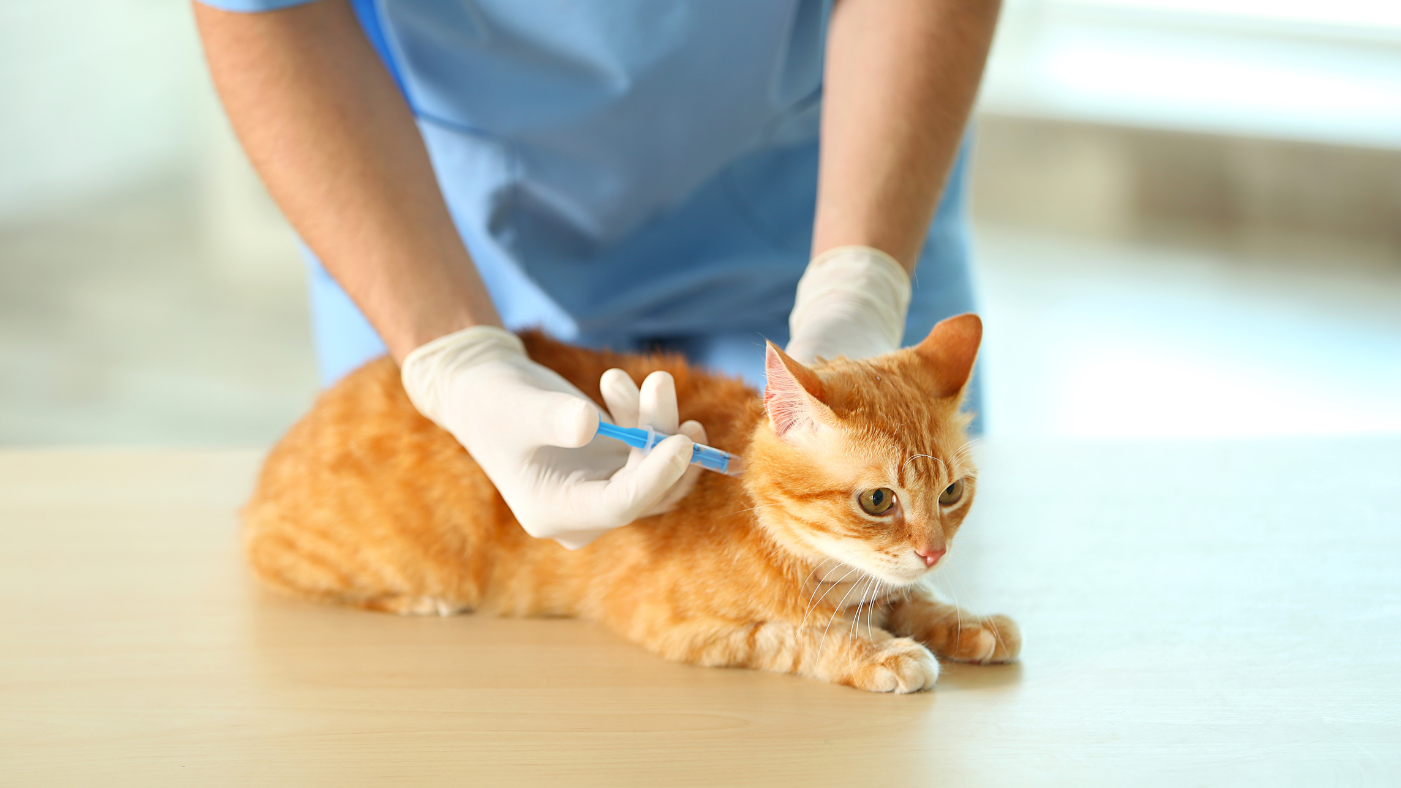
August is National Immunization Awareness Month, a time to focus on the importance of vaccination not only for humans but for our furry friends as well. As pet owners, we have the responsibility to protect our pets from various diseases, some of which can be fatal. Vaccinations can be an important aspect of our pet's health care, and this month serves as a reminder to talk to your trusted provider to come up with the best plan to ensure that our pets are as healthy as possible!
In this blog post, we will provide you with valuable information on pet vaccinations, the different types of vaccines available, and the importance of keeping your pet healthy.
The Importance of Vaccinations for Pets
- Vaccinations protect your pet from harmful and potentially fatal diseases.
- Vaccinations are a key component of preventative healthcare for pets.
- By vaccinating your pet, you not only protect them, but also other animals and humans from the spread of disease.
- Many vaccines are required by law in order to own a pet in certain areas.
- Regular vaccinations can save you money on costly medical treatments for preventable diseases.
- Vaccinations can also give you peace of mind, knowing that you are taking proactive steps to protect your pet's health.
Common Vaccines Your Furry Friends Could Get
Common vaccines for dogs:
- Rabies vaccine: This vaccine is typically required by law and protects dogs from the deadly rabies virus. It is crucial for their safety and the safety of humans.
- Distemper vaccine: The distemper vaccine protects against a highly contagious viral disease that can be fatal for dogs. It covers various respiratory, gastrointestinal, and neurological symptoms.
- Parvovirus vaccine: Parvovirus is a highly contagious and potentially deadly disease that affects a dog's gastrointestinal tract. Vaccination is essential to protect dogs, especially puppies, from this severe infection.
- Canine adenovirus-2 (hepatitis) vaccine: This vaccine prevents a viral infection that primarily affects a dog's liver. It is often combined with the distemper and parvovirus vaccines in a combination shot called the DHPP vaccine.
- Bordetella bronchiseptica (kennel cough) vaccine: Kennel cough is a contagious respiratory infection common in dogs that spend time in close proximity, such as in boarding facilities or dog parks. Vaccination helps reduce the risk of infection.
- Leptospirosis vaccine: Leptospirosis is a bacterial disease that can be transmitted to humans and other animals. Vaccination is recommended, especially for dogs that have a higher risk of exposure to contaminated water sources or wildlife.
Common vaccines for cats:
- Rabies vaccine: Just like in dogs, the rabies vaccine is commonly administered to cats to protect them from the rabies virus. It is often required by law and crucial for their well-being and public health.
- Feline viral rhinotracheitis (FVR) vaccine: FVR is a highly contagious respiratory disease in cats caused by the herpesvirus. The vaccine helps prevent this viral infection and its associated symptoms.
- Feline calicivirus (FCV) vaccine: FCV is another common respiratory disease in cats that causes symptoms like fever, oral ulcers, and pneumonia. Vaccination can reduce the severity and spread of the disease.
- Feline panleukopenia (FPV) vaccine: FPV, also known as feline distemper, is a highly contagious and potentially fatal disease that affects a cat's gastrointestinal tract and immune system. Vaccination is crucial to protect against this serious infection.
- Feline leukemia virus (FeLV) vaccine: FeLV is a viral infection that weakens a cat's immune system and can lead to various diseases, including cancer. Vaccination is recommended, especially for cats that go outdoors or come into contact with other cats.
- Feline immunodeficiency virus (FIV) vaccine: FIV is a viral infection that affects a cat's immune system, similar to HIV in humans. The vaccine can help reduce the risk of FIV transmission, particularly for outdoor cats or those in multi-cat households with known FIV-positive cats.
It's important to consult with a veterinarian to determine the specific vaccines needed for your pet based on their lifestyle, age, and regional considerations. Vaccinations may vary depending on individual factors and local disease prevalence.
The Risks of Not Vaccinating Your Pet
- Potential for serious illness in your pet, including permanent damage to organs, seizures, and even death
- Spread of disease to other animals and humans
- Early detection and treatment of illnesses is important for your pet's overall health
Alternative Options to Vaccines
Vaccine titers can serve as an alternative to routine vaccination for cats and dogs. Instead of automatically administering booster shots at scheduled intervals, veterinarians can use blood tests to determine if an animal's antibody levels are still sufficient to provide immunity against a particular disease. If the titers show that an animal's antibody levels are still protective, then a booster shot may not be necessary.
This approach helps to minimize unnecessary vaccinations, reduce the risk of adverse reactions, and also ensures that animals are adequately protected against infectious diseases. However, it's worth noting that vaccine titers are not a suitable alternative for all diseases, and some vaccines may still need to be administered on a regular schedule depending on the animal's lifestyle and risk of exposure to certain pathogens. It's important to consult with a veterinarian to determine the best vaccination strategy for your pet.
Resources for Pet Owners:
It's important to note that while vaccinations are a crucial part of your pet's health, not all illnesses can be prevented through vaccination. For example, there are currently no vaccines available for kidney disease in pets.
This is why preventative care, such as regular check-ups and screenings, along with our saliva tests, can tremendously help with keeping track of your pet's health! After all, what we really want for our furry friends is to keep them healthy as long as possible!
